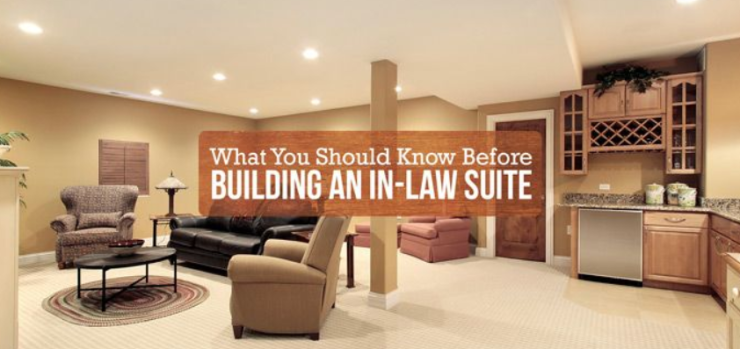Electrical Repair Services: Keeping Your Systems Running Smoothly
Electrical systems form the backbone of modern homes and businesses, powering everything from basic lighting to sophisticated equipment. Electrical repair...

With nearly one in five Americans now living in multigenerational households, building a private living space for aging parents or relatives is becoming more common. Rising costs of assisted living are prompting families to create independent spaces—known as in-law suites—right on their own property.
Instead of assigning them the upstairs guest room, many families are building fully functional in-law apartments that offer both comfort and independence.
An in-law suite—also known as a mother-in-law apartment or granny flat—is a private living area for a parent or relative, typically located within or adjacent to a family’s main residence. These spaces can be additions to the home, converted garages or basements, or even detached structures in the backyard.
If you're converting part of your existing home (like a bedroom, attic, or basement), expect to spend anywhere from $10,000 to $100,000, depending on the size, finishes, and plumbing/electrical work needed.
Building a separate unit in your backyard will typically cost between $40,000 and $125,000. These projects are more extensive and require architectural plans, foundation work, and utility hookups.
Though the upfront cost of building an in-law suite may seem high, it's often far less than long-term assisted living. According to Genworth’s latest Cost of Care Survey, the average price of a private nursing home room is about $108,000 per year. Even a semi-private room averages $94,900 annually. Over time, an in-law suite can be the more economical—and emotionally rewarding—choice.
Before you begin, contact your city’s building department. Some key things to research:
• Whether in-law suites are allowed in your area
• If you can include a full kitchen or need to limit it to a kitchenette
• Requirements for separate entrances
• Sewer and water connection regulations
• Parking accommodations for the new resident
Tip: Detached units often face more zoning restrictions than attached ones.
The best place for your suite depends on space, privacy, and accessibility. Consider:
• Garage conversion: Great if already insulated and heated
• Basement remodel: Offers privacy and can be made cozy with proper lighting
• Spare bedroom + bath: Ideal for simpler renovations
• Attic conversion: A creative use of underutilized space
• Home addition: Customizable, but most expensive
• Backyard guest house or shed conversion: Best for full separation and privacy
Pro Tip: Keep the layout open and minimal to ensure safety and comfort for elderly family members.
Installing separate water, gas, and electric lines lets you:
• Shut off utilities when the space isn’t in use
• Simplify billing if the suite is ever rented out in the future
Think long-term. Your in-laws may plan to age in place, so their space should be accessible and safe.
Must-Have Features:
• Walk-in shower with grab bars
• Non-slip flooring
• Wider doorways for wheelchair access
• Pull-out storage in kitchens and bathrooms
• Lever-style door handles
• Adequate lighting and easy-to-use switches
Need more ideas? Explore our guide on remodeling for aging in place.
Choose a contractor with experience building in-law suites and preferably someone who is a Certified Aging-in-Place Specialist (CAPS). These professionals understand the unique needs of older adults and can recommend smart design choices.
To find a qualified pro, visit the National Association of Home Builders website and search for CAPS-certified contractors in your area.
Adding an in-law suite is a major project—but it’s also a meaningful investment in your family’s comfort and future. Whether you’re planning a cozy conversion or a full backyard build, thoughtful planning and the right team can make the process smooth and rewarding.
With nearly one in five Americans now living in multigenerational households, building a private living space for aging parents or relatives is becoming more common. Rising costs of assisted living are prompting families to create independent spaces—known as in-law suites—right on their own property.